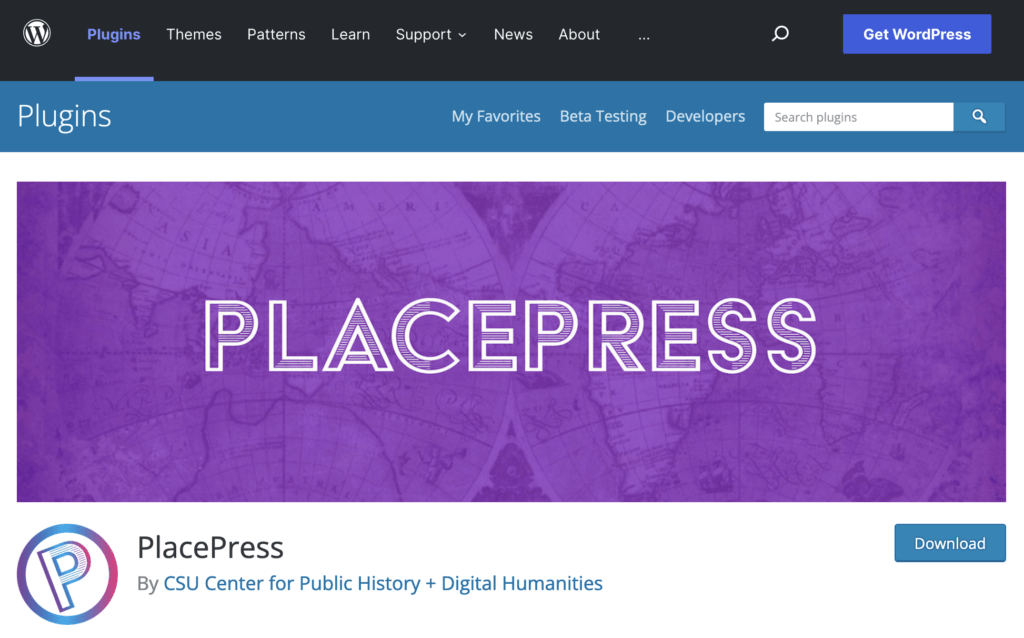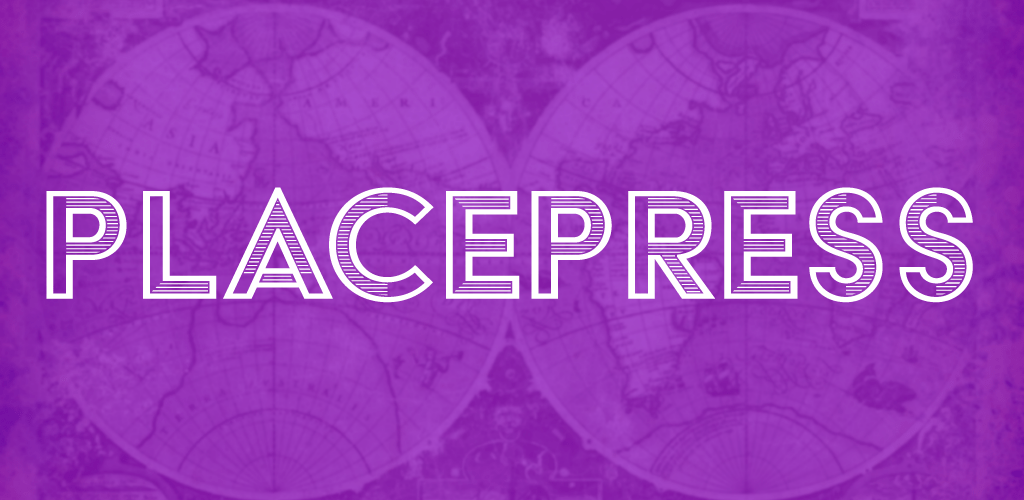We are excited to begin work today on PlacePress, a new WordPress plugin for publishing location-based tours and stories. Thanks to a new National Endowment for the Humanities (NEH) Digital Humanities Advancement Grant, we are starting development of this new tool to empower humanities scholars, educators, museum professionals, preservationists, cultural resource managers, and anyone who seeks a way to enhance their research and public engagement with digital tours. Major development will occur this fall, and in January-April we will test the plugin in concert with partners in Michigan (Wayne State University and Wayne County Parks) and Pennsylvania (Slippery Rock University and Lawrence County Historical Society), as well as on one of our own Cleveland-based projects. In addition, remote user testing will be provided by the University of Oregon Libraries. We expect to release PlacePress in June 2021.
Why PlacePress? After all, there are more tour builder services, websites, and apps out there than may be easily counted. One of them is our own product – Curatescape, an Omeka-based web and mobile framework for doing much the same thing that we propose for PlacePress. Despite its utility and our commitment to its continued improvement, Curatescape has some limiting characteristics that pose barriers for some users. It requires a dedicated website rather than potentially just a page or section; assumes content creators need structured metadata fields; requires the ability to manually update Omeka and the various plugins and theme; and demands more content and configuration to fill out its design. Curatescape is not optimal in situations where a user simply wants to build a digital tour without creating an entirely new project.
We were reminded of this fact when we soft-launched Cleveland Walks, an emerging collection of guided audio tours that encourages users to walk, roll, or bike through different parts of the city and listen to brief, engaging historical narratives of key points of interest. In working on Cleveland Walks, we identified several challenges relating to both content creation and consumption. Like many web-based projects having multiple authors, the structure and display of our content was inconsistent. Without a shared methodology for creating tours, our authors (primarily students and volunteers) struggled to meet editorial and design standards. The project still does not include maps for each stop on the tour. PlacePress will solve these issues, making it trivial to add maps and build tours using predefined blocks.
Other available tour builders, despite their attractive qualities, present other barriers to adoption. Chief among these constraints are: lack of control over where and how content is displayed (including on aggregation sites with incongruous content and ads); expensive license or service fees; the collection of user data for commercial use; and/or content that is only available in a specific mobile app or that is alternately not optimized for the mobile web. Many services require creators to publish content to a centralized portal, which undercuts individual project identity and limits future choice.

In contrast to existing tour-building tools, PlacePress aspires to serve a fundamental need in a way that meshes with existing organizational websites, gives users ownership of their content and control over how it is displayed, does not impose a high cognitive load on content creation, and accounts for two key imperatives of any project: affordability and sustainability. Building upon more than a decade of developing digital tools and processes for interpretive curation of place-based content, including the Curatescape for WordPress prototype we created as part of a several-year NEH-funded project that continues to support a digital storytelling initiative in western Kenya, we will distill some of the most elemental and useful features of both versions of Curatescape in a simple, self-contained WordPress plugin that offers only what is essential for location-based curation. Users may opt to add page-building tools to fully customize place-based content using the features available in other parts of their WordPress site, including those added by third-party plugins. And, as one would expect, PlacePress may be added to any existing WP-based website without disrupting existing processes or requiring code changes.
In short, PlacePress will do only what is necessary for the task at hand, leaving fundamental design decisions up to individual project administrators, and it will lower the bar for robust humanities-rich tours.
Watch for periodic updates on our progress by following @CPHDH on Twitter.


Comments are closed.